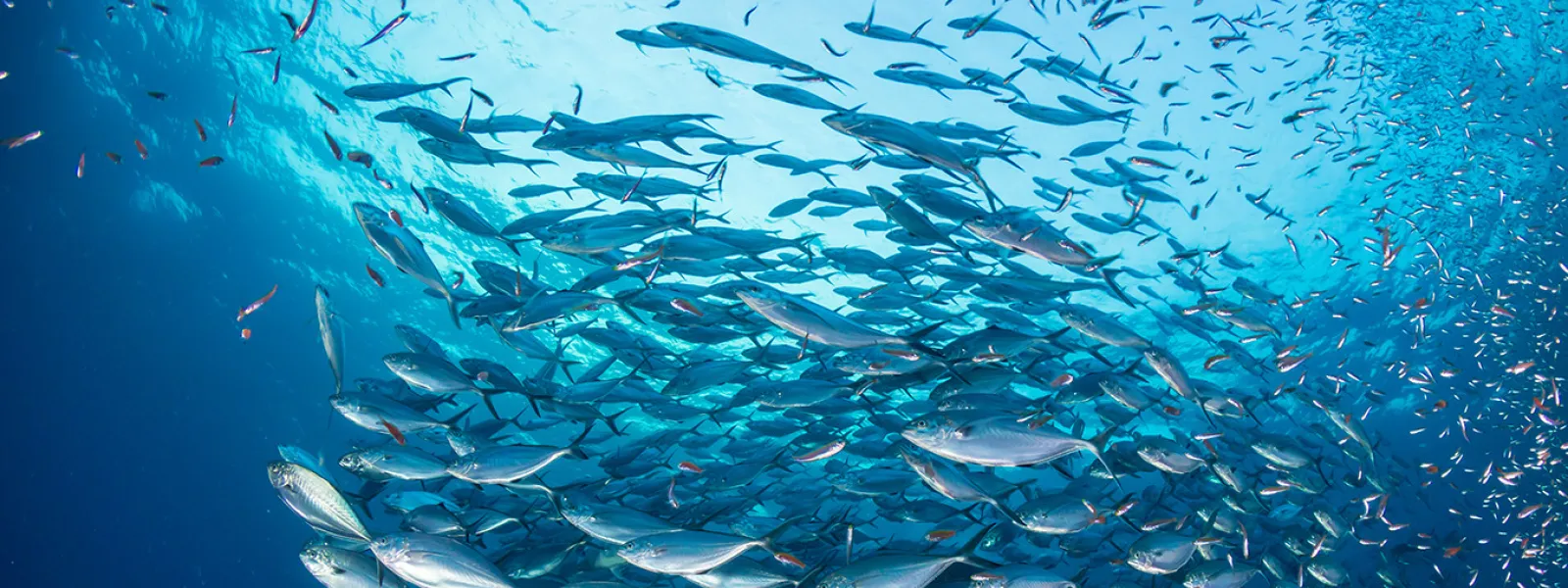
Project
ShutterstockTowards an end to subsidies that promote overfishing
Overfishing is one of the main problems for the health of our ocean. And the provision of negative subsidies to the fishing sector is one of the fundamental causes of overfishing.
Fishing subsidies are financial contributions, direct or indirect, that public entities grant to the industry.
Depending on their impacts, they can be beneficial when they promote the growth of fish stocks through conservation and fishery resource management tools. And they are considered negative or detrimental when they promote overfishing with support for, for example, increasing the catch capacity of a fishing fleet.
It is estimated that every year, governments spend approximately 22 billion dollars in negative subsidies to compensate costs for fuel, fishing gear and vessel improvements, among others.
Recent data show that, as a result of this support, 63% of fish stocks worldwide must be rebuilt and 34% are fished at "biologically unsustainable" levels.
Although negotiations on fisheries subsidies, within the framework of the World Trade Organization, officially began in 2001, it was not until the 2017 WTO Ministerial Conference that countries committed to taking action to reach an agreement.
This finally happened in June 2022, when member countries of the World Trade Organization reached, after more than two decades, a binding agreement to curb some harmful fisheries subsidies. It represents a fundamental step toward achieving the effective management of our fisheries resources, as well as toward ensuring global food security and the livelihoods of coastal communities.
The agreement reached at the 12th WTO Ministerial Conference provides for the creation of a global framework to reduce subsidies for illegal, unreported and unregulated fishing; subsidies for fishing overexploited stocks; and subsidies for vessels fishing on the unregulated high seas. It also includes measures aimed at greater transparency and accountability in the way governments support their fisheries sector.
The countries agreed to continue negotiating rules to curb other harmful subsidies, such as those that promote fishing in other countries' waters, overfishing and the overcapacity of a fleet to catch more fish than is sustainable.
If we want to have abundant and healthy fishery resources, it is time to change the way we have conceived fishing until now. We must focus our efforts on creating models of fishery use that allow for long-term conservation.
Partners:
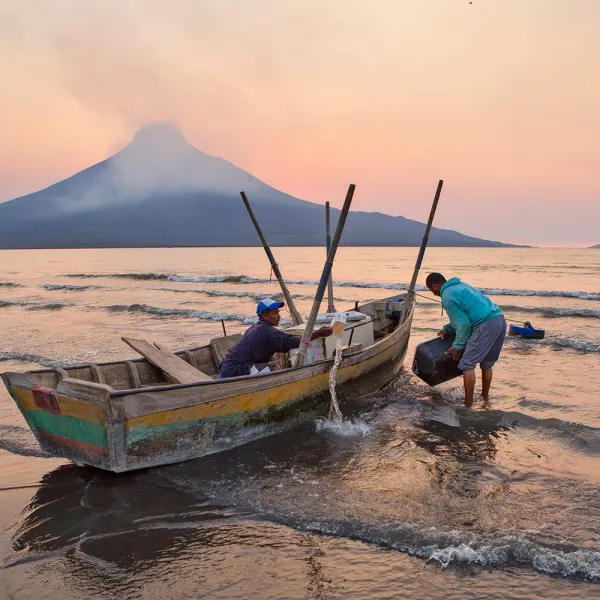
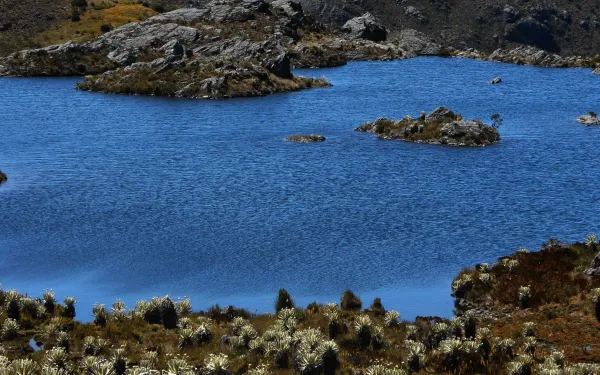
Organizations ask the UN to intervene in the protection of the Santurbán páramo, at risk from mining
They request that the United Nations Special Rapporteur on the Rights to Drinking Water and Sanitation prepare a report on the case, visit the site, and support the Colombian government in taking the necessary actions to protect the ecosystem, an important source of water for millions of people, from the dangers of mining. Bucaramanga, Colombia. Civil society organizations in Colombia sent a communique to Léo Heller, United Nations Special Rapporteur on the Rights to Drinking Water and Sanitation. In it, they warn that their rights are at serious risk in the face of proposed mining projects in or near the Santurbán páramo, a water source for more than 10 municipalities and 3 large cities. They request that the Rapporteur prepare a report on the case, visit the site, and support the Colombian government in protecting that ecosystem. Actions and omissions by the Colombian government have allowed the development of mining projects that threaten the availability and quality of water provided by the páramo. The government’s protection of the páramo did not include the entire ecosystem, leaving a part of it unprotected, and did not allow for public participation. As a result, the Constitutional Court ordered the government to redo the process of delimiting the páramo. The submission details: the process of defining the boundaries of the Santurbán páramo; the importance of that process for the environment and the enjoyment of the right to water in Colombia; the legal framework for the protection of páramos in the country; and the development of projects in or near the site. It also outlines associated environmental impacts or threats, including a decrease in the quality and quantity of water, contamination due to the use of explosives, a decrease in air quality, an increase in noise level, and the permanent loss of habitats. Likewise, the submission details the impacts of Investor State Dispute Settlement (ISDS) claims on governmental decisions to protect their water sources. Several mining companies have tried for more than 15 years to extract gold from the Santurbán páramo. Some of those are Canadian companies, who are currently using this arbitration process to demand hundreds of millions of dollars from the Colombian government in compensation for their “lost” profits. The organizations ask that the Rapporteur monitor the situation in the Santurbán páramo and urge the Colombian government to comply with its international obligations in relation to the right to water. Find more information on the case here. press contacts: Alix Mancilla, Comité para la Defensa del Agua y el Páramo de Santurbán, [email protected], +57 311 2439273 (Spanish only) Carlos Lozano, AIDA, [email protected], +57 300 56 40 282 Carla García, CIEL, [email protected], +1 202 374 2550 Kirsten Francescone, MiningWatch Canada, [email protected], +14373459881 Kristen Genovese, SOMO, [email protected], +31 65 277 3272
Read more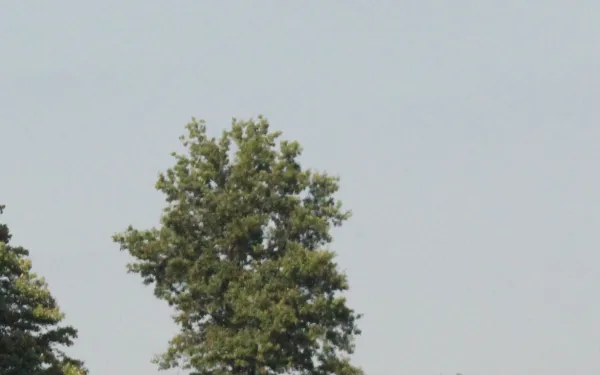
Moratoriums and bans on fracking: Comparative legislation
Hydraulic fracturing is a technique used to extract nonconventional petroleum products, such as tight gas and shale oil, from deep underground deposits. To release these hydrocarbons, the rock formations in which they are trapped must first be shattered into many small pieces. Hydraulic fracturing, or fracking, thus involves drilling 1000 to 5000 meters into the earth and injecting a high-pressure fluid mix of water, sand and various chemicals to fracture the rock and release the hard-to-reach hydrocarbons. This controversial technique has sparked resistance in many communities, regions, and countries where it is causing serious dangers to public health and the environment. Countries, regions, cities and communities around the world have chosen to prohibit or place moratoriums on fracking through various legal and administrative mechanisms. These fracking bans are driven by a number of concerns surrounding the dangers fracking poses to the environment and public health. We would like to point out the following arguments: Above ground and subterranean water sources, air, and soil in the vicinity of fracking operations are at serious risk of contamination. There remains scientific uncertainty regarding of the magnitude of fracking’s impacts on public health and the environment. Measures put in place by the hydrocarbon industry to prevent the impacts of fracking have not yet been proven effective. Moreover, a “general consensus” among actors in the hydrocarbon industry does not guarantee that fracking operations are safe for humans and the environment. There is a serious risk of contamination of soil and water sources in rural and agricultural areas. Fracking impacts communities’ ways of life, and limits consumer confidence that food and agricultural products grown or produced in areas affected by fracking are safe to consume. Fracking emits significant volumes of greenhouse gases into the atmosphere, exacerbating anthropogenic climate change. Among these gases produced by fracking are large volumes of methane, which traps roughly 30 times more heat in the atmosphere than carbon dioxide. There is a large and growing social opposition to fracking, driven by community organizations and citizen mobilization, demonstrating widespread popular opposition to the technique. Indigenous communities like the Cherokee argue that defending their territories against fracking is essential to their continued survival. Most of the moratoriums and bans on fracking surveyed in this report adopt the precautionary principle, either directly referencing the principle or indirectly alluding to it. For example, most fracking bans are based on the possibility of serious and irreversible harms caused by the extraction technique, or on the scientific uncertainty regarding the magnitude of fracking’s impacts. These measures invoke the precautionary principle, which states that in the event a technique could cause serious or irreversible dangers, or if there is a lack of scientific evidence that a technique is safe, decision makers should adopt proactive measures that protect the health of people and the environment above all. However, various measures to ban or pass moratoriums on fracking did first require exhaustive scientific investigations by government authorities to better understand the risks fracking could cause to public health and the environment. Those studies confirmed the serious risks of hydraulic fracturing, but could not prove with certainty the short and long-term impacts of fracking, nor the efficacy of industry efforts to prevent and mitigate those dangers. In a pair of case studies (in Northern Ireland and Wales) government authorities used the precautionary principle to establish a burden of proof, placing the onus on the hydrocarbon industry to clearly and scientifically demonstrate that the proposed fracking activities would not cause serious or irreversible harm to public health or the health of the environment. If the party pursuing hydraulic fracturing could not show evidence-based proof of the safety of fracking in a particular instance, authorities would maintain precautionary measures (such as prohibitions or moratoriums) in order to protect the health of people and the environment. The measures adopted in these cases were formalized via legislation or through orders issued by the executive branch or other administrative bodies. In two of the cases examined (New York and Maryland in the United States), prohibitions or moratoriums on fracking at the municipal level were key to securing political and legal support at larger, regional jurisdictions. Furthermore, social mobilization by grassroots organizations helped amplify and legitimize anti-fracking movements at the national or regional level. In all cases, anti-fracking measures were passed only after mobilizing social resistance to fracking, which built awareness, generated larger movements, and unified voices against the technique. Civil society organizations have employed a diverse and creative array of methods to build support with political actors. Among them are citizens’ legislative initiatives, petitions, letters and meetings with policymakers, marches, strikes and protests, and other collective action. All have proven effective in generating political support to pass fracking bans. The power of social mobilization against fracking has been a deciding factor in many cases in which authorities have recognized that widespread public opposition to fracking is the principal reason to pass local fracking bans or moratoriums. SEE THE REPORT (IN SPANISH)
Read more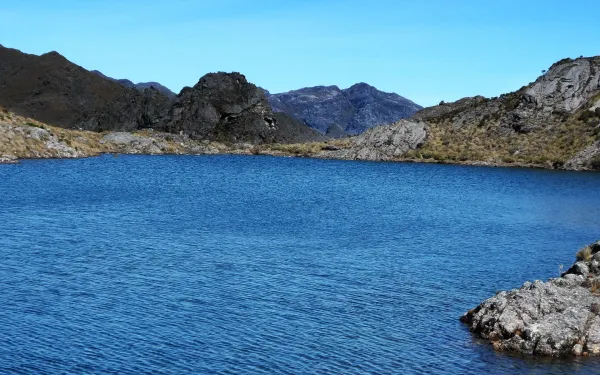
World Bank Arbitration Tribunal Refuses to Listen to Those Affected by Mining in Santurbán, Colombia
The World Bank’s International Center for Settlement of Investment Disputes (ICSID) has declined to accept an Amicus Curiae that was to be presented by the Committee for the Defense of Water and the Páramo of Santurbán and allied international organizations. Bucaramanga, Bogotá, Washington, Ottawa, Amsterdam. National and international civil society organizations rebuffed the International Centre for Settlement of Investment Disputes’ (ICSID) refusal to accept an Amicus Curiae within the process of the ongoing international arbitration brought forth by Canadian mining company Eco Oro Minerals Corp. against Colombia. The arbitration centre is hearing the ongoing international arbitration put forth by the Canadian company in question against the Andean nation. The company is attempting to pursue its Angostura gold mining project in the Santurbán páramo, located in the northeast of the country. The arbitration questions the decisions taken by the Colombian State to protect its páramos, high mountain wetlands that are a natural source of water for 70% of its inhabitants. The arbitration is being heard at the ICSID, an organization dependent on the World Bank that is in charge of the resolution of disputes between investors and States. Colombia could be condemned to pay $746 million US dollars, an unprecedented sanction for the country. “At a time when Latin American countries are embracing the principles of environmental democracy with the adoption of the Escazú Agreement, ICSID is going in the opposite direction. It is regrettable that in the midst of the regional movement for transparency and participation, ICSID has opted to constrict itself even more. In doing so, it is only generating more anger and distrust, not only in the face of this mechanism, but also in the face of the whole system of Investor-State Arbitration worldwide,” stated Carla García Zendejas, Senior Attorney at the Center for International Environmental Law (CIEL). “The communities affected by mining in Santurbán have to be heard and can provide crucial elements for the case,” said Carlos Lozano, Senior AIDA Attorney. The organizations consider that the Committee for the Defense of Water and the Páramo of Santurbán has a significant interest in the outcome of the process and that they could have provided expertise to the arbitration tribunal, which would have been helpful for a better decision in the case. In the same way, they urge ICSID to expand citizen participation and make its decision-making processes more transparent. This is transcendental for the public interest of the countries whose governments are subject to its jurisdiction. Find more information on the case here. PRESS CONTACTS: Alix Mancilla, Comité para la Defensa del Agua y el Páramo de Santurbán, [email protected], +57 311 2439273 Carla García Zendejas, CIEL, [email protected], +1 202 374 2550 Carlos Lozano Acosta, AIDA, [email protected], +57 300 56 40 282 Kirsten Francescone, MiningWatch Canada, [email protected], +14373459881 Kristen Genovese, SOMO, [email protected], +31 65 277 3272, Manuel Perez Rocha, Institute for Policy Studies, [email protected] +1 240 838 6623
Read more